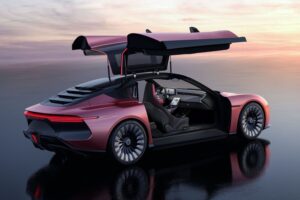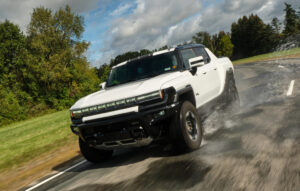Table of Contents
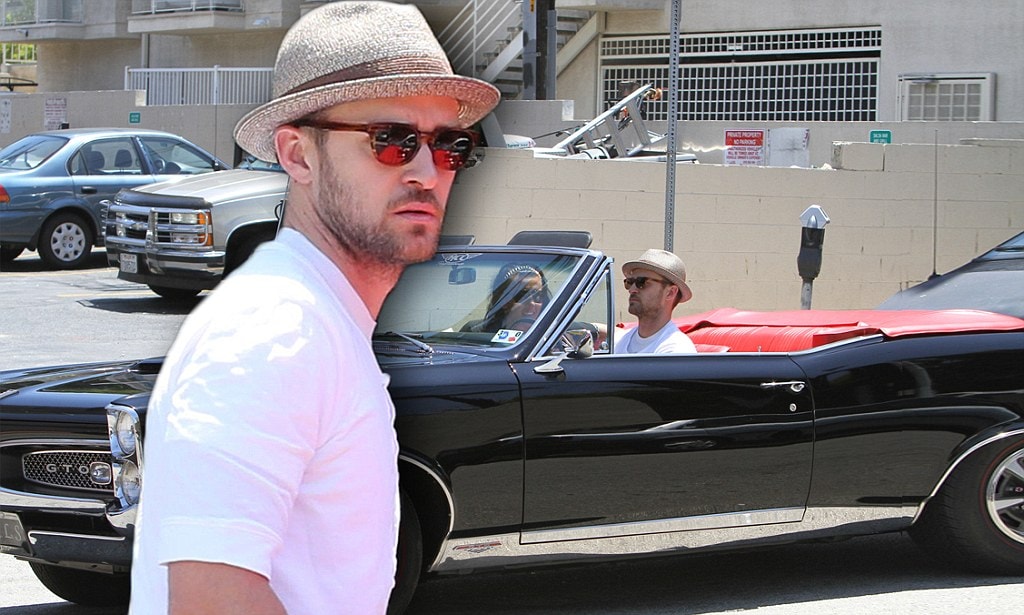
Key Takeaways
-
Many celebrities have converted their classic cars to electric to combine style with sustainability.
-
Converting a classic car to electric can preserve automotive history while being eco-friendly.
-
Key components of electric conversions include batteries, motors, and often custom fabrication.
-
Electric car conversions are not just for celebrities; they’re accessible to all drivers interested in reducing their carbon footprint.
-
Contacting a professional conversion company can provide personalized advice and services for your classic car’s electric transformation.
Driving the Future Forward: Celebrity Electric Car Conversions
Imagine cruising down the road in a sleek, classic car that turns heads not just for its timeless beauty, but also for its silent, eco-friendly electric power. This is no longer a dream of the future; it’s the reality today for a growing number of celebrities and car enthusiasts who have embraced electric vehicle (EV) conversions.
Boosting Eco-Friendly Innovations
Electric vehicle technology is advancing rapidly, and it’s not just the latest models that are getting the electric treatment. Classic cars, once known for their gas-guzzling engines, are now being reborn with zero-emission electric powertrains. This innovative blend of old and new is gaining traction, partly thanks to high-profile conversions that are spotlighting the potential for a more sustainable future in motoring.
The Stars’ Role in a Greener Tomorrow
Celebrities have a unique ability to influence public opinion and trends, especially when it comes to lifestyle choices. By converting their beloved classic cars to electric power, they send a powerful message: sustainability can go hand-in-hand with luxury and performance.
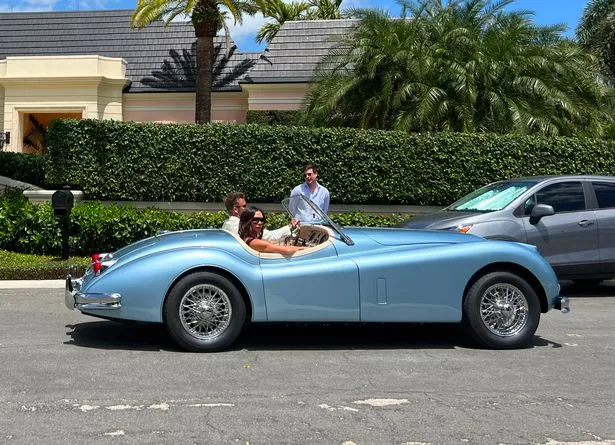
The Electrifying Appeal of Classic Cars
Classic cars hold a special place in the hearts of many, and the thought of altering them can be met with skepticism. However, the transition to electric is often a practical solution to keep these cherished vehicles on the road, especially as environmental regulations become stricter.
Timeless Design Meets Modern Technology
The allure of classic cars isn’t just in their design; it’s the history and the stories they carry. By integrating modern electric powertrains, these vehicles can continue to make memories on the road without the environmental impact of their original internal combustion engines.
The Move Toward Sustainable Motoring
“Sustainable motoring is not a trend, it’s a transition. Converting classic cars to electric is a testament to our ability to honor the past while moving forward responsibly.” – An Electric Vehicle Conversion Specialist
The automotive industry is shifting gears towards sustainability, and converting classic cars to electric is a significant part of this movement. This transition allows us to retain the aesthetic and cultural value of classic cars while embracing the benefits of modern technology.
Gordon Ramsay’s High-Speed Porsche 911 Makeover
World-renowned chef Gordon Ramsay is no stranger to speed and precision, both in the kitchen and on the road. Ramsay’s decision to convert his classic Porsche 911 to electric power is a nod to his commitment to excellence and sustainability. The result is a high-performance vehicle that respects the environment, showcasing that even the most iconic sports cars can embrace electric power without sacrificing their soul.
The Green Revolution in the Automotive World
As we face the urgent need to reduce our carbon footprint, the automotive industry is undergoing a green revolution. This isn’t just about manufacturing new electric vehicles; it’s also about transforming the old into the eco-friendly. Classic car electric conversions are at the heart of this revolution, combining the charm of vintage models with the advancements of modern electric powertrains.
Environmental Benefits of Ditching the Gas Pump
Transitioning from gasoline to electric power has clear environmental advantages. Electric vehicles produce zero tailpipe emissions, which means they don’t contribute to air pollution while driving. This switch helps reduce the overall demand for fossil fuels and mitigates the impact of transportation on climate change.
How Electric Conversions Preserve Automotive History
Classic cars are often seen as artifacts of automotive history, and electric conversions provide a way to preserve this heritage. By retrofitting these vehicles with electric motors, we ensure that they remain viable and relevant in a world that’s rapidly moving away from fossil fuels. It’s a way to honor the past while adapting to the future.

Step by Step: The Conversion Process
Converting a classic car to electric power is a meticulous process that involves several critical steps. It starts with selecting the right vehicle, followed by sourcing the appropriate components, and ends with expert installation and testing.
Selecting the Right Vehicle for Conversion
Not every classic car is a good candidate for electric conversion. Factors such as weight, design, and structural integrity play a crucial role in determining whether a vehicle can handle the new powertrain. The ideal candidates are those with enough space to house batteries and a chassis that can support the additional weight.
Key Components in Electrifying Your Classic Car
To convert a classic car to electric, you’ll need several key components:
-
Batteries: The heart of the electric vehicle, storing the energy that powers the motor.
-
Electric Motor: This replaces the internal combustion engine and provides the car’s propulsion.
-
Controller: Acts as the brain, managing the flow of electricity from the batteries to the motor.
-
Charger: Allows you to recharge the batteries from a standard electrical outlet or charging station.
-
DC-DC Converter: Steps down the high-voltage DC from the batteries to the 12-volt DC needed to power the vehicle’s accessories.
-
Regenerative Braking System: Recaptures energy typically lost during braking, extending the car’s range.
Your Eco-Friendly Ride Awaits
With the right team and components, your classic car can be reborn as a modern electric marvel. This transformation not only gives your vehicle a new lease on life but also aligns your passion for classic cars with the imperative to protect our planet.
Join the Ranks of Eco-Conscious Drivers
If you’re inspired by the trend of celebrity electric car conversions and want to contribute to a greener future, it’s time to take action. Whether you own a classic car or are considering purchasing one, converting it to electric power is a meaningful step toward sustainable driving. By doing so, you’ll join a growing community of eco-conscious drivers who value both the environment and the joy of motoring.
To learn more about how you can convert your classic car to electric and to get personalized advice, Contact Us. Our team of experts is ready to help you embark on your electric journey and ensure your ride is both eco-friendly and exhilarating.
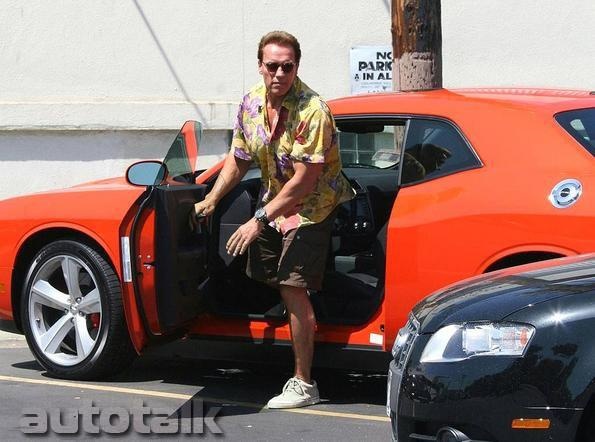
Contact Us to Start Your Electric Journey
If you’re ready to take a step towards a more sustainable lifestyle and give your classic car a clean, electric heartbeat, our doors are open. Our expert team is passionate about marrying timeless design with cutting-edge technology. We’re here to guide you through every step of the conversion process, ensuring that your classic car retains its soul while embracing the future.
Converting your classic car to electric isn’t just about making a statement; it’s about making a difference. With every classic car we convert, we’re driving forward the movement for a cleaner, more sustainable future. And it all starts with you. Contact us today to learn how we can transform your classic car into an eco-friendly electric vehicle that’s ready for the roads of tomorrow.
FAQs
Got questions? We’ve got answers. Here are some of the most common questions we hear from classic car owners interested in electric conversions.
What Kinds of Classic Cars Can be Converted to Electric?
Most classic cars can be converted to electric, but the best candidates are those with enough space for batteries and a structure that can support the weight. Popular models for conversion include the classic Mini, Volkswagen Beetle, Porsche 911, and various models of Land Rovers and Jaguars.
How Long Does a Classic Car Electric Conversion Take?
The time it takes to convert a classic car to electric can vary widely depending on the make and model, the complexity of the conversion, and the level of customization required. On average, you can expect the process to take anywhere from 3 to 6 months.
Are Electric Car Conversions Road Legal?
Yes, electric car conversions are road legal, provided they meet certain safety and environmental standards. It’s essential to work with a reputable conversion company that understands the regulations and can ensure your converted vehicle is fully compliant.
What is the Expected Range of a Converted Electric Classic Car?
The range of a converted electric classic car depends on factors like the type of batteries used, the weight of the vehicle, and driving conditions. Typically, converted vehicles can achieve a range of 100 to 200 miles on a single charge.
Can I Convert My Classic Car to Electric on My Own?
While it’s possible for individuals with the necessary technical skills to undertake an electric conversion project, it’s generally recommended to work with professionals. A professional conversion ensures safety, reliability, and compliance with legal standards.


